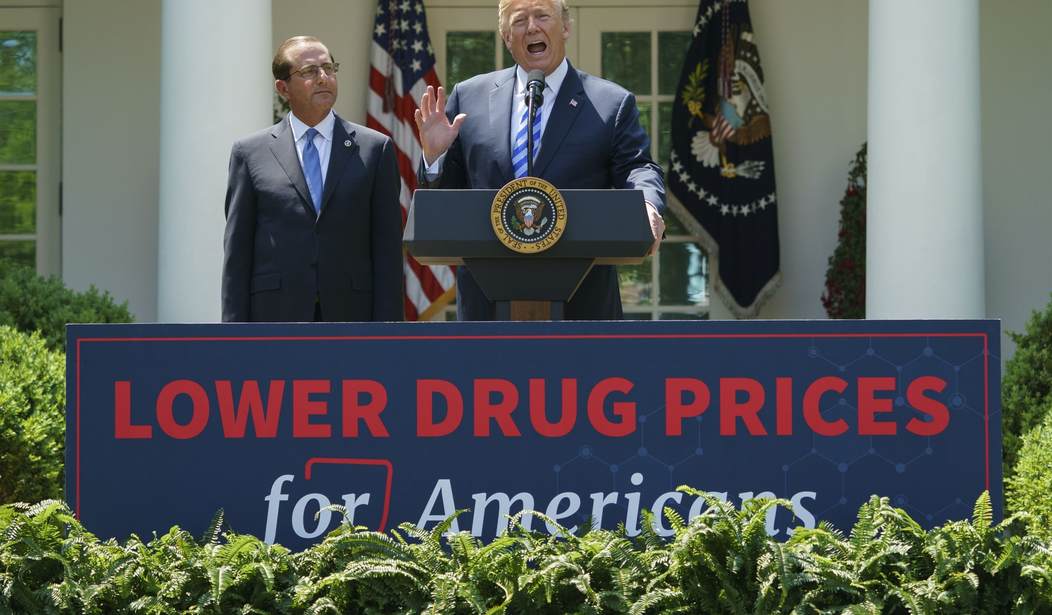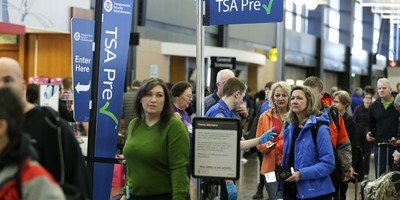As campaign season kicks into high gear, President Trump is trying to make his case to the American people that he will fight for them. In the age of the deadly COVID-19 pandemic, that means ensuring that patients across the country have access to the critical medications they need to survive. Unfortunately, though, a new executive order (EO) signed by President Trump will impose onerous price controls on lifesaving drugs at the worst possible time. This reckless policy will make it far harder for producers to research cutting-edge cures, while ensuring shortages at more than 60,000 community pharmacies across the country. President Trump should ditch this failed policy and embrace markets and competition in healthcare.
On September 13, President Trump announced an order tethering drugs covered under Medicare Parts B and D to artificially low prices in other countries. Under the status quo, the prices paid by Medicare for seniors’ medications are determined by a market-based “average sales price” (plus commission for doctors). While far from perfect, this system takes stock of supply and demand in the private marketplace and incorporates discounts such as manufacturers’ rebates. The EO ushers in a “most favored nations” scheme that would require Medicare to take the drug prices paid by other developed nations into account when determining its own reimbursement rates. The idea is for the U.S. to get an even better deal on medications than other first-world countries.
There’s just one small problem: the countries the U.S. would be relying on to set drug prices have socialized healthcare systems. Sure, nations such as the United Kingdom, France, and Germany all have different healthcare systems and diverge in significant ways. But, in all these countries, bureaucrats arbitrarily set drug prices instead of relying on market fundamentals. And this dangerous assumption that government officials know better than producers results in unrealistically low prices that fail to make up for research, development and regulatory costs. Whether in the U.S. or Europe, bringing a medication to market costs billions of dollars and often takes more than a decade. And when manufacturers cannot charge the prices needed to recoup these astronomical costs, they respond by curtailing production and cutting back research into new medications.
Recommended
Europe has seen these devastating shortages firsthand. According to a 2019 survey by the European Association of Hospital Pharmacists, 95 percent of pharmacists across the continent have cited the problem of medication shortages. An astounding 81 percent of these professionals experienced product shortages more than three times in the past year. Nearly half of all pharmacists cited regular shortages for oncology (cancer) drugs, while more than 30 percent noted the persistent scarcity of statins. Patient and healthcare groups in Europe have pressed European Union bureaucrats to do something about these significant shortages, but regulators care more about talking tough to producers than actually fixing the issue.
While there are some drug shortages in the U.S., strong intellectual property protections and pricing flexibility keep problems to a minimum. In most recent years, the Food and Drug Administration has reported 50 or fewer new shortages per year out of approximately 20,000 prescribed products approved for marketing in the U.S. Not all medications are used equally of course, but patients typically face few issues procuring common medications such as statins and routine vaccinations.
And as manufacturers continue to produce these medications, they’re hard at work on a coronavirus treatment. Implementing price controls will stymie this promising research, making life needlessly difficult for millions of patients waiting on treatments for deadly diseases such as COVID-19.
The “most favored nations” policy will set a disturbing precedent for government meddling and force research and production elsewhere. This would not only set back the fight to beat back coronavirus, but also undermine President Trump’s campaign message of American resurgence. America can bounce back stronger and more resilient than ever, but only if we beat back the coronavirus by using markets instead of government intervention in healthcare.
Ross Marchand is a senior fellow for the Taxpayers Protection Alliance.























Join the conversation as a VIP Member